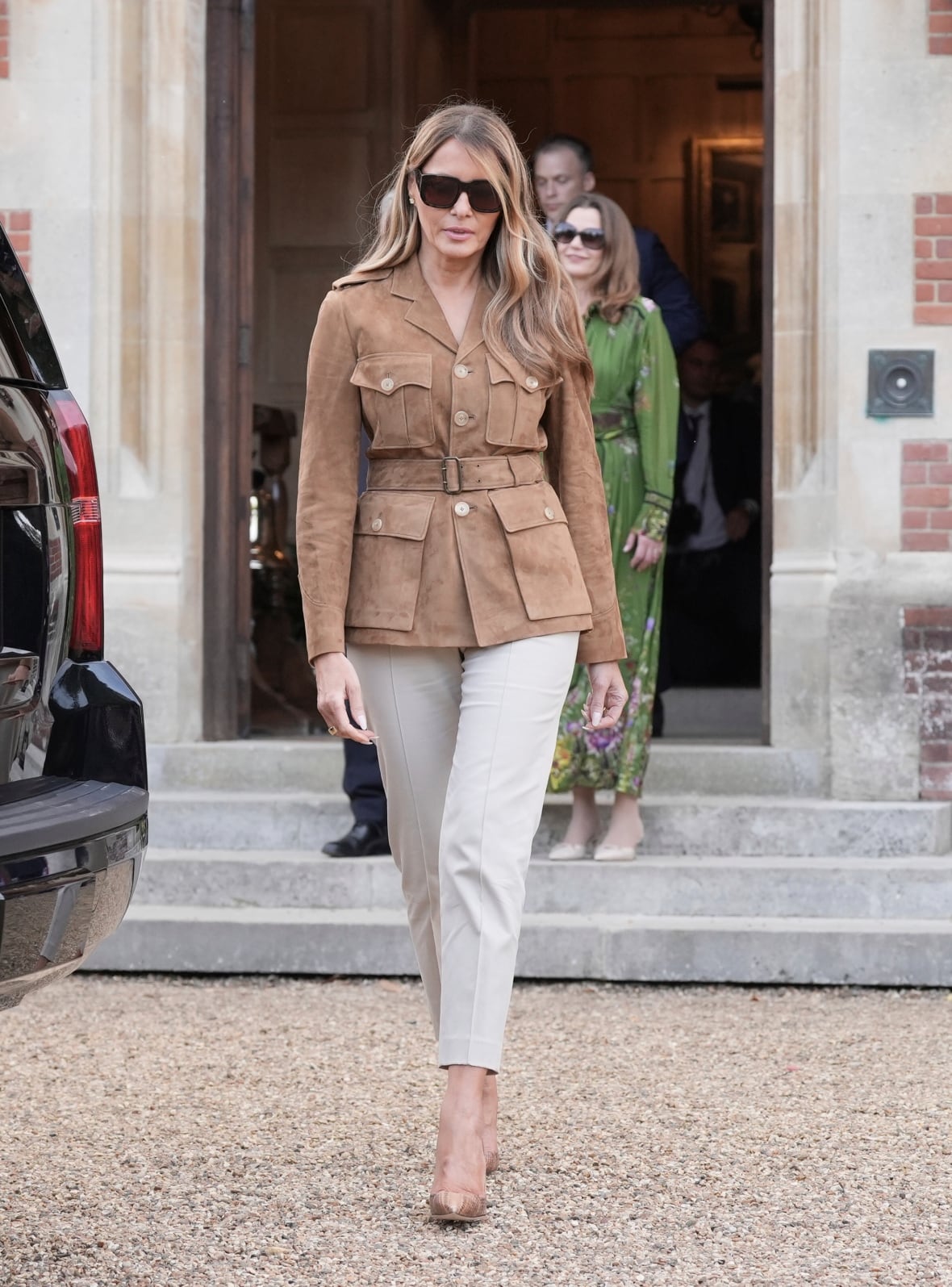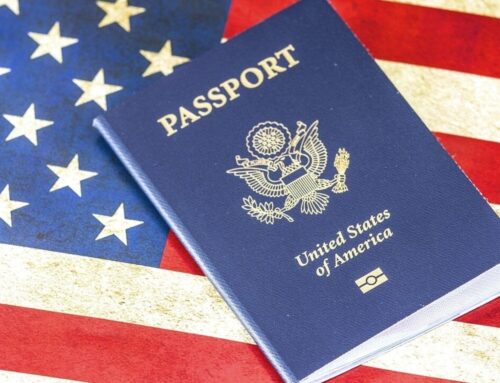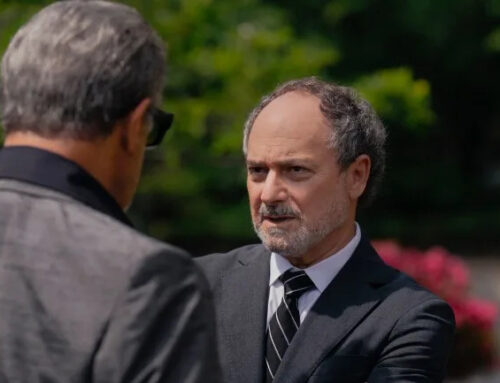Confusion over Trump plan to add $100K fee to visas for highly skilled workers leaves Whit
September 20, 2025
President Donald Trump’s latest plan to overhaul the U.S. immigration system has created confusion, leaving the White House scrambling to clarify that a new $100,000 fee on visas for skilled workers only applies to new applicants and not current visa holders.
On Friday, Trump signed a proclamation that would require payment of a $100,000 annual fee for the visa, meant for highly skilled jobs that technology companies find hard to fill.
“Those who already hold H-1B visas and are currently outside of the country right now will NOT be charged $100,000 to re-enter,” White House press secretary Karoline Leavitt said in a posting on X, formerly Twitter. “This applies only to new visas, not renewals, and not current visa holders.”
The fee takes effect at 12:01 a.m. ET Sunday. It is scheduled to expire after a year. But it could be extended if the government determines that is in the interest of the United States to keep it.
The White House, in a social media post, also sought to make clear the new rule “does not impact the ability of any current visa holder to travel to/from the U.S.”
But according to an immigration lawyer, the White House move has threatened to upend the lives of many skilled workers and has far-reaching impact on American business.
Kathleen Campbell Walker, who’s with Dickinson Wright based in El Paso, Texas, said in a LinkedIn posting that the White House move “inserts total chaos in existing H-1B process with basically a day’s notice.”
On Friday, Commerce Secretary Howard Lutnick told reporters that the fee would be an annual cost for companies.
But a White House official said Saturday that it’s a “one-time fee.” Asked if Lutnick’s comments created confusion, the official, who was not authorized to comment publicly about the matter and spoke on the condition of anonymity, said the new fee “currently does not apply to renewals but that policy is under discussion.”
If the moves survive legal muster, they would deliver staggering price increases. The visa fee for skilled workers would jump from $215.
India concerned visa plan would disrupt families
India’s Ministry of External Affairs said Saturday that Trump’s plan “was being studied by all concerned, including by Indian industry.″
The ministry warned that “this measure is likely to have humanitarian consequences by way of the disruption caused for families. Government hopes that these disruptions can be addressed suitably by the U.S. authorities.”
More than 70 per cent of H-1B visa holders are from India. H-1B visas require at least a bachelor’s degree.
Critics argue the program undercuts American workers, hiring people from overseas who are often willing to work for as little as $60,000 annually. That is well below the $100,000-plus salaries typically paid to U.S. technology workers.
Trump on Friday insisted that the tech industry would not oppose the move, while Lutnick said “all big companies” are on board.

Representatives for the biggest tech companies — including Amazon, Apple, Google and Meta — did not immediately respond to messages for comment. Microsoft declined to comment.
“We’re concerned about the impact on employees, their families and American employers,” the U.S. Chamber of Commerce said. “We’re working with the administration and our members to understand the full implications and the best path forward.”
Lutnick said the change will likely result in far fewer H-1B visas than the 85,000 annual cap allows because “it’s just not economic anymore.”
“If you’re going to train people, you’re going to train Americans,” Lutnick said on a conference call with reporters. “If you have a very sophisticated engineer and you want to bring them in … then you can pay $100,000 a year for your H-1B visa.”
Trump also announced he will start selling a gold-card visa with a path to U.S. citizenship for $1 million after vetting. For companies, it would cost $2 million to sponsor an employee.
‘Fan service for immigration restrictionists’
A Trump platinum card would be available for $5 million and allow foreigners to spend up to 270 days in the U.S. without being subject to U.S. taxes on non-U.S. income. Trump announced a $5-million gold card in February to replace an existing investor visa — this is now the platinum card.
Lutnick said the gold and platinum cards would replace employment-based visas that offer paths to citizenship, including for professors, scientists, artists and athletes.
Some critics of H-1B visas who say they are used to replace American workers have applauded the move.
The federal government has quietly updated its online travel advice to remind Canadians to ‘expect scrutiny’ from border patrol officers if they travel to the United States.
U.S. Tech Workers, an advocacy group, called it “the next best thing” to abolishing the visas altogether.
Doug Rand, a senior official at U.S. Citizenship and Immigration Services during the Joe Biden administration, said the proposed $100,000 fee increase was “ludicrously lawless.”
“This isn’t real policy — it’s fan service for immigration restrictionists,” Rand said. “Trump gets his headlines and inflicts a jolt of panic, and doesn’t care whether this survives first contact with the courts.”
“The president has no legal authority to tax American visas,” said Michael Clemens, a George Mason University economist who studies immigration. “He has the authority to charge reasonable fees for cost recovery, not set fees at $100,000, or $100 million or whatever suits his personal … arbitrary capricious whims.
“If the president feels that H-1B visas are harmful, he can work with the people’s representatives in Congress to reform the laws that regulate those visas. His choice to legislate by proclamation subverts our entire immigration governance system,” said Clemens, also a senior fellow at the Peterson Institute for International Economics.
“Beyond that, it is poisonous (and) irresponsible to do so with no warning, no public debate, leaving hundreds of thousands of workers and millions of their colleagues and family members in chaos and fear.”
Lutnick said the H-1B fees and gold card could be introduced by the president, but the platinum card would need congressional approval.
Visas doled out by lottery
Historically, H-1B visas have been doled out through lottery. This year, Amazon was by far the top recipient of H-1B visas with more than 10,000 awarded, followed by Tata Consultancy, Microsoft, Apple and Google. Geographically, California has the highest number of H-1B workers.
Some critics say H-1B spots often go to entry-level jobs, rather than senior positions with unique skill requirements. They say while the program isn’t supposed to undercut U.S. wages or displace U.S. workers, companies can pay less by classifying jobs at the lowest skill levels, even if the specific workers hired have more experience.
As a result, many U.S. companies find it cheaper to contract out help desks, programming and other basic tasks to consulting companies such as Wipro, Infosys, HCL Technologies and Tata in India, and IBM and Cognizant in the U.S. These consulting companies hire foreign workers, often from India, and contract them out to U.S. employers looking to save money.
Ron Hira, a professor in the political science department at Howard University and a longtime critic of H-1B visas, said the plan was a move in the right direction.
“It’s a recognition that the program is abused,” he said.
Raising the visa fee, he said, was an unusual way to address the H-1B program’s shortcomings. Normally, reformers seek ways to raise the pay of the foreign workers, eliminating the incentive to use them to replace higher-paid Americans, Hira said.
He noted approvingly that Trump’s proclamation calls for the U.S. Labour Department to “initiate a rulemaking to revise the prevailing wage levels” under the visa program.
Those opposed to H-1B visas have also called on the lottery to be replaced by an auction in which companies vie for the right to bring in foreign workers.
Melania Trump received H-1B visa in the ’90s
Trump’s wife, Melania Trump, the former Melania Knauss, was granted an H-1B work visa in October 1996 to work as a model. She was born in Slovenia.

In 2024, lottery bids for the visas plunged nearly 40 per cent, which authorities said was due to success against people who were “gaming the system” by submitting multiple, sometimes dubious, applications to unfairly increase chances of being selected.
Major technology companies that use H-1B visas sought changes after massive increases in bids left their employees and prospective hires with slimmer chances of winning the random lottery. Facing what it acknowledged was likely fraud and abuse, U.S. Citizenship and Immigration Services this year said each employee had only one shot at the lottery, whether the person had one job offer or 50.
Critics welcomed the change, but said more needs to be done. The AFL-CIO wrote last year that while changes to the lottery “included some steps in the right direction,” it fell short of needed reforms. The labour group wants visas awarded to companies that pay the highest wages instead of by random lottery, a change that Trump sought during his first term in the White House.
Search
RECENT PRESS RELEASES
Related Post



